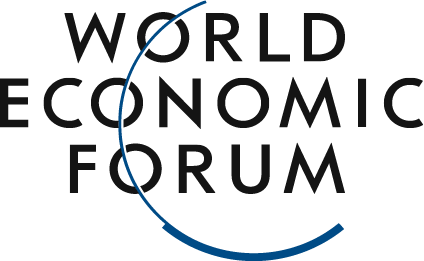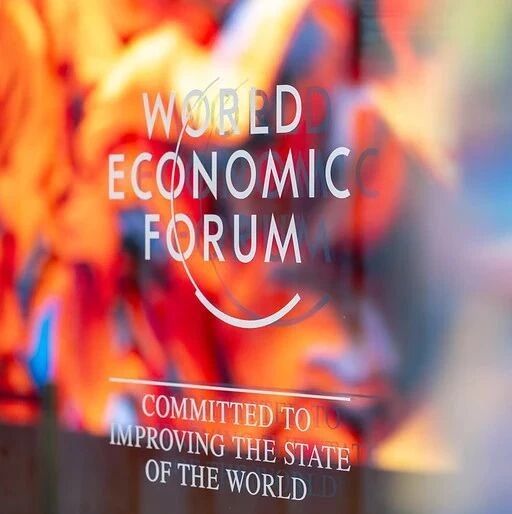The World Economic Forum welcomes 22 new members to its Global Lighthouse Network—a community of 172 industry leaders who are pioneering the adoption of cutting-edge technologies from the Fourth Industrial Revolution in manufacturing. Nineteen production facilities have undergone transformation driven by technology, significantly boosting productivity and earning them a spot as Lighthouse Factories in the Fourth Industrial Revolution. Additionally, three production facilities that employ advanced technologies to minimize their environmental impact have been recognized as "Sustainable Lighthouses." For more details about the Global Lighthouse Network, click to read the original article.
Sustainable Lighthouse
1. Foxconn Industrial Internet (Shenzhen, China):To fulfill its carbon-neutral commitment in the consumer electronics industry, Foxconn Industrial Internet leverages artificial intelligence, the Internet of Things, and other technologies from the Fourth Industrial Revolution to optimize material recycling, track real-time carbon footprints, and drive process innovation—paving the way for sustainable development. As a result, Scope 3 emissions have been reduced by 42%, while Scope 1 and Scope 2 emissions have decreased by 24%. Additionally, the company has increased the proportion of recyclable materials to between 55% and 75%.
2. Midea Washing Machines (Hefei, China):As a global leader in washing machine manufacturing and a pioneer in sustainability, Hefei Midea has implemented 24 use cases leveraging Fourth Industrial Revolution technologies to cut emissions and optimize energy consumption. The facility has reduced Scope 1 and Scope 2 emissions by 36.4% and lowered Scope 3 emissions by 26.0%. Currently, 31% of the plant’s energy comes from solar power, 40% of its water is recycled and reused, and waste generation has been reduced by 22.1%.
3. Tsingtao Beer (Qingdao, China):The beer brewing industry is a traditional sector. Qingdao Brewery has implemented 25 use cases leveraging advanced algorithms and IoT technologies, aiming to reduce energy consumption and carbon intensity in beer production. As a result, the factory achieved a 25% reduction in unit energy consumption, along with a 57% decrease in Scope 1 and Scope 2 emissions, and a 13% reduction in Scope 3 emissions.
Single-Factory Lighthouse
1. Beko Dishwasher Plant (Ankara, Turkey):To meet the growing demand for high-quality dishwashers, Beko Dishwasher Plant has integrated 35 proprietary solutions into its IoT platform, FLOW, actively driving its transformation toward the Fourth Industrial Revolution. As a result, the plant has slashed product time-to-market by 46%, reduced on-site failure rates by 29.2%, and cut conversion costs by 26.1%. Additionally, the facility has provided Fourth Industrial Revolution skills training to over 1,000 employees, helping them stay ahead in an increasingly digital and automated manufacturing landscape.
2. AstraZeneca Pharmaceuticals (Södertälje, Sweden):To boost production capacity and accelerate time-to-market, AstraZeneca’s Södertälje pharmaceutical plant has implemented more than 50 Fourth Industrial Revolution technologies—such as machine learning and optimization algorithms—and provided skills-upgrade training for 3,000 employees. As a result, labor productivity has increased by 56%, while the time required to deliver new product developments has been cut by 67%.
3. AstraZeneca Pharmaceuticals (Wuxi, China):Facing domestic price cuts and increasingly volatile market demand, AstraZeneca’s pharmaceutical plant in Wuxi has implemented 34 use cases from the Fourth Industrial Revolution, including artificial intelligence and advanced algorithms, to streamline production and boost manufacturing efficiency. As a result, the plant has increased output by 55%, reduced its manufacturing delivery cycle by 44%, slashed the number of imperfect batches by 80%, and improved labor productivity by 54%.
4. Coca-Cola (Singapore Tuas Bay):To handle the growing order volume and an increasingly complex product portfolio, the factory leveraged machine learning technologies to implement advanced solutions such as demand forecasting, robotics, and sophisticated scheduling algorithms. As a result, production increased by 28%, labor productivity soared by 70%, product shortages were reduced by 80%, on-time delivery rates improved by 31%, and Scope 2 emissions were cut by 34%.
5. Continental Group (Brandys nad Labem, Czech Republic):As Continental Group's largest electronics plant in Brandys, the facility has revamped its processes to better align with shifting consumer demands and preferences. By implementing more than 30 digital solutions, the plant has boosted operational efficiency by 35%, improved space utilization by 15%, and reduced on-site incidents by 10%. At the same time, employee satisfaction has increased, setting a new benchmark for high-tech production as the company prepares to launch its upcoming "Digital Superfactory."
6. Roche Pharmaceuticals (Kaiseraugst, Switzerland):Roche Pharmaceuticals aims to launch 20 groundbreaking, innovative drugs by 2030. As a key driver in achieving this ambitious goal, Roche’s Basel Active Pharmaceutical Ingredient (API) manufacturing site produces a wide range of therapeutic products, including chemically synthesized small molecules. To enhance efficiency, the site has implemented digital and AI solutions, reducing production variability by 60%, cutting technology transfer time in half, and lowering Scope 1 and Scope 2 emissions by 31%. These advancements further solidify its critical role within Roche’s global network.
7. Foxconn Industrial Internet (Bac Giang, Vietnam):In the process of enhancing its global supply-chain resilience, Foxconn's Vietnam factory has overcome early-stage challenges, such as heavy reliance on imported materials and the urgent need to develop local talent. By implementing more than 40 advanced Industry 4.0 use cases—ranging from sophisticated planning to AI-powered automation—the factory has achieved a remarkable 190% increase in labor productivity, boosted its on-time delivery rate to 99.5%, and simultaneously slashed manufacturing costs by 45%.
8. General Electric Healthcare (Beijing, China):GE Healthcare's Beijing factory, serving 160 countries, has deployed 45 digital solutions across 26 production lines to meet its complex manufacturing and quality requirements. Leveraging artificial intelligence for defect detection and deep learning, the facility has slashed production cycles by 66%, reduced production waste by 66%, and cut customer complaints by 73%.
9. Jubilant Ingrevia Limited (Baruch, India):Ingrevia, thrilled to be at the forefront, is deploying Fourth Industrial Revolution technologies across its global brownfield specialty chemicals manufacturing operations, providing skills retraining for more than 2,000 employees. By leveraging artificial intelligence and machine learning, IoT-based digital twins, and advanced predictive platforms, the plant has seamlessly integrated over 30 distinct technology use cases—resulting in a 60% reduction in overall process variability and nearly doubling production output.
10. Mengniu Dairy (Yinchuan, China):To deliver fresher, more nutritious dairy products to a wider range of consumers, Mengniu Dairy’s Ningxia factory has implemented over 30 advanced Fourth Industrial Revolution use cases—ranging from intelligent decision-making to flexible automation. These applications span every stage of the process, including milk processing, packaging, and quality inspection, resulting in a 55% reduction in delivery times, a 60% decrease in quality defects, and a 32% drop in operational costs. As a result, the factory has significantly enhanced both operational efficiency and product quality.
11. Hisense Hitachi Air Conditioning Systems (Qingdao, China):To meet the demands of the global market, Hisense Hitachi Air Conditioning Systems' Qingdao factory has implemented more than 40 use cases aligned with the Fourth Industrial Revolution, boosting product development speed by 37%, increasing labor productivity by 49%, and reducing production costs by 35%.
12. Sanmen Nuclear Power Plant (Taizhou, China):Sanmen Nuclear Power is committed to achieving zero accidents. To enhance operational safety, Sanmen Nuclear Power has deployed over 40 use cases from the Fourth Industrial Revolution, including artificial intelligence and robotics. Thanks to these initiatives, the plant continues to maintain a flawless safety record, boosting its capacity factor by 1.5%, shortening the overhaul cycle by 46%, and improving labor productivity by 18%.
13. Sany Heavy Energy (Shaoshan, China):To address the various challenges in the production and transportation of large wind turbine blades, Sany Renewable Energy has deployed 29 use cases of Fourth Industrial Revolution technologies—including artificial intelligence and smart automation—which have helped reduce product defects by 20%, boost production efficiency by 33%, and cut delivery times by 34%. This demonstrates the profound impact of digital technology on advancing clean energy development.
14. Schneider Electric (Monterrey, Mexico):To meet the growing demand for complex products, Schneider Electric’s Monterrey plant has comprehensively integrated several digital technologies, such as machine learning-driven predictive analytics and autonomous robots. Thanks to these enhancements, the factory has sustained annual growth, reducing product defects by 20% and cutting water consumption by 30%.
15. Siemens (Erlangen, Germany):Siemens' Erlangen plant has rolled out its Green Lean Digital strategy, aiming to lead the way in medium-volume, multi-variety manufacturing. Backed by a flexible, modular IT architecture, the facility has integrated over 100 AI algorithms and extensively leveraged digital twin technology—resulting in a 69% boost in labor productivity, a 40% reduction in time-to-market, and a 42% decrease in energy consumption.
16. Taiyuan Heavy Industry Rail Transit Equipment (Taiyuan, China):To meet the stringent safety and quality standards of high-speed railways, the plant has implemented more than 40 use cases of Fourth Industrial Revolution technologies. By integrating artificial intelligence and flexible automation solutions, the facility has continuously boosted production efficiency and product quality, reducing defect rates by 33%, cutting unit costs by 29%, and increasing output by 33%.
17. Zhengzhou Coal Mining Machinery Group (Zhengzhou, China):To meet the growing demand for fully customized hydraulic supports and faster delivery times, Zhengzhou Coal Mining Machinery Group has implemented 48 use cases of Fourth Industrial Revolution technologies—such as IoT, machine learning, and adaptive automation—transforming itself into a highly efficient, flexible, and smart factory. As a result, the company has reduced order-to-delivery time by 66%, boosted per capita productivity by 205%, and slashed product defect rates by 73%.
End-to-End Lighthouse
1. Haier (Jiaozhou) Air Conditioners (Qingdao, China):To meet the rapidly growing global demand and address delays in R&D, delivery, and after-sales service, Haier (Jiaozhou) Air Conditioner—operating as a factory that supplies 90% of its products globally—has leveraged technologies such as big data, advanced algorithms, and generative AI to optimize its entire value chain. As a result, the company has reduced its design cycle by 49%, shortened order delivery times by 19%, and lowered failure rates in overseas markets by 28%.
2. Schneider Electric (Shanghai, China):Given the significant surge in global orders, the minimum inventory unit in the new energy market has increased fourfold. Schneider Electric Shanghai has boosted its automation levels by 20% and integrated several advanced technologies, including machine learning–powered prototyping, intelligent planning, and generative AI-driven system maintenance. As a result, the company has accelerated product time-to-market by 63%, reduced order-based production lead times by 67%, and improved labor productivity by 82%.
About the Global Lighthouse Network

The World Economic Forum is an independent and neutral platform dedicated to bringing together diverse perspectives to discuss critical global, regional, and industry-specific issues.
Follow us on Weibo, WeChat Video Channels, Douyin, and Xiaohongshu!
"World Economic Forum"


